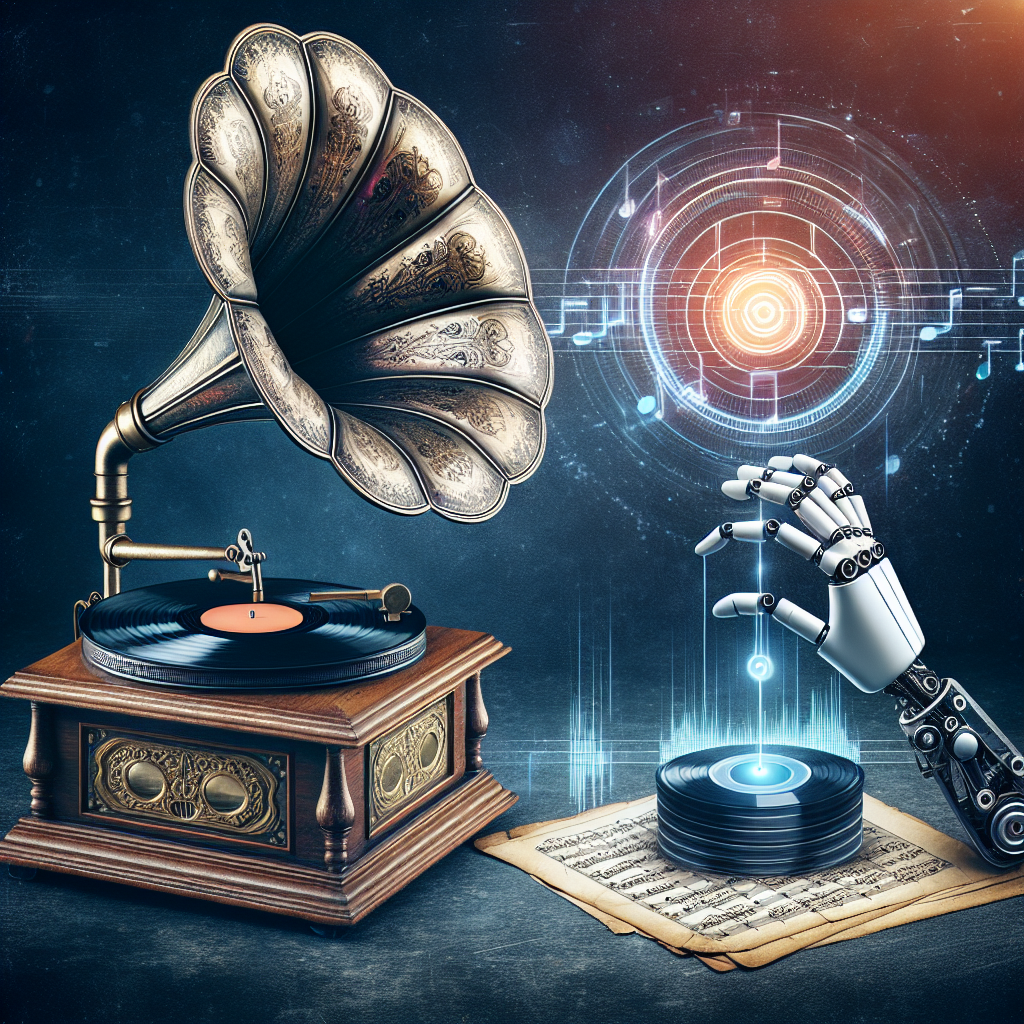The Potential of AI in Music Preservation and Restoration
Music has always been an integral part of human culture and history. It serves as a form of expression, communication, and entertainment. Throughout the years, music has evolved and transformed, with different genres and styles emerging to cater to diverse tastes and preferences. However, with the passage of time, many recordings of music have been lost or damaged, leaving gaps in our understanding of musical history.
In recent years, advances in artificial intelligence (AI) technology have opened up new possibilities for music preservation and restoration. AI has the potential to revolutionize the way we preserve and restore music, making it possible to recover lost or damaged recordings, enhance audio quality, and even recreate performances of music from the past.
One of the key ways in which AI can be used for music preservation is in the restoration of damaged or degraded recordings. Over time, many recordings can deteriorate due to factors such as age, storage conditions, or physical damage. AI algorithms can be used to analyze and repair these recordings, removing background noise, enhancing audio quality, and restoring missing or distorted sounds. This technology can help to preserve valuable recordings for future generations, ensuring that they are not lost to history.
Another area where AI can make a significant impact is in the preservation of cultural heritage. Many recordings of traditional music and songs from different cultures are at risk of being lost due to neglect, deterioration, or obsolescence of playback equipment. AI can be used to digitize and archive these recordings, making them accessible to a wider audience and ensuring that they are preserved for posterity.
AI can also be used to recreate performances of music from the past. By analyzing existing recordings, AI algorithms can learn the unique characteristics of a particular artist or musical style and generate new performances that capture the essence of the original music. This technology can be used to bring back to life performances of iconic musicians who are no longer with us, allowing audiences to experience their music in a new and exciting way.
In addition to preservation and restoration, AI can also be used to enhance the way we interact with music. AI-powered music recommendation systems can help users discover new music based on their preferences and listening habits, while AI-generated music can be used to create personalized soundtracks for movies, games, and other media. AI can also be used to analyze and categorize large collections of music, making it easier for researchers and musicologists to study and explore different genres and styles.
Despite its potential, AI in music preservation and restoration also raises some important questions and challenges. For example, how can we ensure that AI algorithms are trained on diverse and representative datasets to avoid bias and distortion in the restored recordings? How can we protect the rights of artists and creators when using AI to generate new performances or remix existing recordings? How can we balance the benefits of AI technology with the ethical and cultural considerations surrounding music preservation and restoration?
To address these and other questions, it is important to engage in open and transparent discussions about the role of AI in music preservation and restoration. By bringing together experts from different fields, including musicology, computer science, and ethics, we can develop guidelines and best practices for the responsible use of AI in music preservation and restoration.
In conclusion, AI has the potential to revolutionize the way we preserve and restore music, offering new opportunities to recover lost recordings, enhance audio quality, and recreate performances from the past. By harnessing the power of AI technology, we can ensure that the rich and diverse history of music is preserved and celebrated for generations to come.
FAQs:
Q: How does AI technology help in restoring damaged recordings?
A: AI algorithms can analyze and repair damaged recordings by removing background noise, enhancing audio quality, and restoring missing or distorted sounds.
Q: Can AI recreate performances of music from the past?
A: Yes, AI algorithms can learn the unique characteristics of a particular artist or musical style and generate new performances that capture the essence of the original music.
Q: What are some of the challenges of using AI in music preservation and restoration?
A: Challenges include ensuring diverse and representative datasets to avoid bias, protecting the rights of artists and creators, and balancing the benefits of AI technology with ethical and cultural considerations.
Q: How can we develop guidelines and best practices for the responsible use of AI in music preservation and restoration?
A: By engaging experts from different fields, including musicology, computer science, and ethics, we can develop guidelines and best practices for the responsible use of AI in music preservation and restoration.

